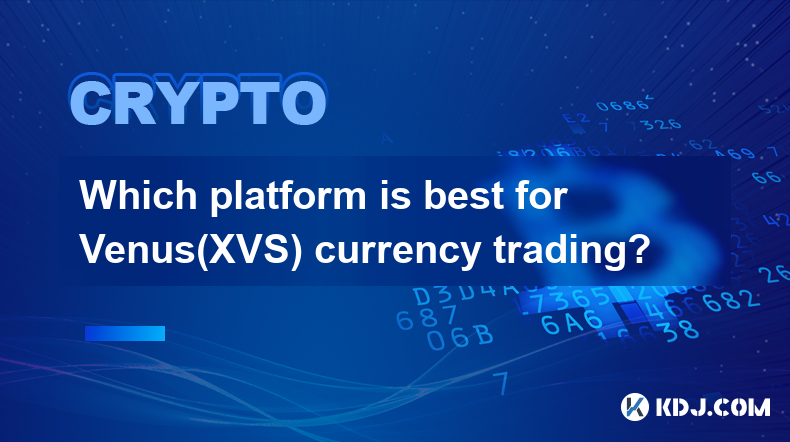-
 Bitcoin
Bitcoin $99,560.3949
2.67% -
 Ethereum
Ethereum $1,951.2300
6.28% -
 Tether USDt
Tether USDt $1.0001
0.01% -
 XRP
XRP $2.2064
3.09% -
 BNB
BNB $613.8040
1.33% -
 Solana
Solana $154.0293
4.38% -
 USDC
USDC $0.9999
-0.01% -
 Dogecoin
Dogecoin $0.1830
5.58% -
 Cardano
Cardano $0.7176
5.29% -
 TRON
TRON $0.2508
1.79% -
 Sui
Sui $3.7465
10.63% -
 Chainlink
Chainlink $14.8531
7.06% -
 Avalanche
Avalanche $20.9166
5.91% -
 Stellar
Stellar $0.2736
4.31% -
 Bitcoin Cash
Bitcoin Cash $414.7250
13.08% -
 UNUS SED LEO
UNUS SED LEO $8.8023
1.31% -
 Shiba Inu
Shiba Inu $0.0...01340
4.45% -
 Hedera
Hedera $0.1858
4.96% -
 Toncoin
Toncoin $3.1179
3.29% -
 Hyperliquid
Hyperliquid $21.6150
1.58% -
 Litecoin
Litecoin $92.0306
0.75% -
 Polkadot
Polkadot $4.2501
7.01% -
 Monero
Monero $298.2987
4.40% -
 Dai
Dai $1.0002
-0.02% -
 Bitget Token
Bitget Token $4.3415
0.41% -
 Ethena USDe
Ethena USDe $1.0004
0.00% -
 Pi
Pi $0.6197
6.41% -
 Pepe
Pepe $0.0...09091
11.37% -
 Bittensor
Bittensor $400.4217
9.80% -
 Uniswap
Uniswap $5.2244
7.18%
Which platform is best for Venus(XVS) currency trading?
PancakeSwap tops the list for Venus (XVS) currency trading, offering security, high liquidity, and a competitive 0.2% trading fee.
Dec 08, 2024 at 02:03 pm

Which Platform is Best for Venus(XVS) Currency Trading?
Venus (XVS) is a decentralized finance (DeFi) protocol that allows users to borrow, lend, and trade cryptocurrencies. XVS is the native token of the Venus protocol, and it can be used to pay for transaction fees, earn rewards, and participate in governance decisions.
There are three main criteria to consider when choosing a platform for Venus (XVS) currency trading: security, liquidity, and fees.
- Security: The security of a trading platform is paramount. You want to make sure that your funds are safe and that the platform is not vulnerable to hacks or other security breaches.
- Liquidity: Liquidity refers to the amount of trading activity on a platform. A more liquid platform will have more buyers and sellers, making it easier to buy and sell XVS at a fair price.
- Fees: Fees are another important consideration. Some platforms charge trading fees, while others charge withdrawal fees. You want to find a platform that offers low fees so that you can keep more of your profits.
Best Platforms for Venus (XVS) Currency Trading
Based on the criteria above, the following are the best platforms for Venus (XVS) currency trading:
- PancakeSwap
PancakeSwap is a decentralized cryptocurrency exchange built on the Binance Smart Chain (BSC). It is the largest decentralized exchange in the world by trading volume, and it offers a wide range of cryptocurrencies, including XVS.
PancakeSwap is a secure trading platform with a strong track record of protecting user funds. It also offers high liquidity, making it easy to buy and sell XVS at a fair price. PancakeSwap charges a 0.2% trading fee, which is lower than the fees charged by some other exchanges.
- Uniswap
Uniswap is a decentralized cryptocurrency exchange built on the Ethereum blockchain. It is the second-largest decentralized exchange in the world by trading volume, and it offers a wide range of cryptocurrencies, including XVS.
Uniswap is a secure trading platform with a strong track record of protecting user funds. It also offers high liquidity, making it easy to buy and sell XVS at a fair price. Uniswap charges a 0.3% trading fee, which is slightly higher than the fees charged by PancakeSwap.
- Venus
Venus is a decentralized cryptocurrency exchange that is specifically designed for trading synthetic assets. It offers a wide range of synthetic assets, including stocks, commodities, and fiat currencies.
Venus is a secure trading platform with a strong track record of protecting user funds. It also offers high liquidity, making it easy to buy and sell XVS at a fair price. Venus charges a 0.1% trading fee, which is the lowest fee charged by any of the exchanges on this list.
- SushiSwap
SushiSwap is a decentralized cryptocurrency exchange that is built on the Ethereum blockchain. It is a popular alternative to Uniswap, and it offers a wide range of cryptocurrencies, including XVS.
SushiSwap is a secure trading platform with a strong track record of protecting user funds. It also offers high liquidity, making it easy to buy and sell XVS at a fair price. SushiSwap charges a 0.3% trading fee, which is the same as the fee charged by Uniswap.
- Balancer
Balancer is a decentralized cryptocurrency exchange that is built on the Ethereum blockchain. It is a popular choice for trading large volumes of cryptocurrencies, and it offers a wide range of cryptocurrencies, including XVS.
Balancer is a secure trading platform with a strong track record of protecting user funds. It also offers high liquidity, making it easy to buy and sell XVS at a fair price. Balancer charges a 0.2% trading fee, which is lower than the fees charged by some other exchanges.
Disclaimer:info@kdj.com
The information provided is not trading advice. kdj.com does not assume any responsibility for any investments made based on the information provided in this article. Cryptocurrencies are highly volatile and it is highly recommended that you invest with caution after thorough research!
If you believe that the content used on this website infringes your copyright, please contact us immediately (info@kdj.com) and we will delete it promptly.
- XRP Just Did the Most Textbook Move — and It's Flying Toward This Resistance
- 2025-05-08 20:15:12
- LockBit ransomware gang's dark web affiliate panel was breached, leaking nearly 60,000 Bitcoin addresses
- 2025-05-08 20:15:12
- BNB Could Rise More Than 360% to $2775 by 2028, According to Standard Chartered
- 2025-05-08 20:10:12
- Cardano’s $619M Scandal Centers on Allegations About Unclaimed ADA Moved Without Permission by Hoskinson
- 2025-05-08 20:10:12
- Bitcoin (BTC) Has Recovered Rather Sharply
- 2025-05-08 20:05:12
- PEPE Coin Shows Strong Recovery Signals as Whale Accumulation and Technical Patterns Point to a Potential Breakout
- 2025-05-08 20:05:12
Related knowledge

Is Ethereum smart contract call fee high? How to optimize costs?
May 08,2025 at 09:35am
Is Ethereum Smart Contract Call Fee High? How to Optimize Costs? The world of Ethereum smart contracts has revolutionized the way we think about decentralized applications and blockchain technology. However, one of the most frequently discussed topics within this realm is the cost associated with executing smart contract calls. In this article, we will ...

Is Ethereum Layer2 fee low? How to use it cheaper?
May 08,2025 at 03:56am
The question of whether Ethereum Layer 2 solutions offer lower fees and how to use them more economically is a topic of great interest within the cryptocurrency community. Ethereum's Layer 2 solutions have been developed to address the high transaction fees and scalability issues associated with the main Ethereum network. In this article, we will delve ...

How to calculate Ethereum network fee? How to reduce transaction costs?
May 08,2025 at 02:15am
Understanding and managing Ethereum network fees is crucial for anyone involved in transactions on the Ethereum blockchain. The network fee, also known as gas fee, is the amount of Ether (ETH) required to successfully conduct a transaction or execute a smart contract on the Ethereum network. Calculating these fees and finding ways to reduce them can sig...

What is Ethereum Gas Fee? How to optimize Gas Fee to save costs?
May 08,2025 at 03:43am
Ethereum gas fees are a crucial aspect of interacting with the Ethereum blockchain. Understanding and optimizing these fees can significantly impact the cost-effectiveness of transactions and smart contract interactions. In this article, we will delve into what Ethereum gas fees are, how they are calculated, and provide detailed strategies for optimizin...

How to perform MOVE cross-chain transfer? What to do if the gas fee is too high?
May 07,2025 at 08:03pm
Introduction to MOVE Cross-Chain TransferCross-chain transfers have become an essential part of the cryptocurrency ecosystem, allowing users to move assets between different blockchain networks. One of the popular protocols for achieving this is the MOVE cross-chain transfer. This article will guide you through the process of performing a MOVE cross-cha...

How is the DYDX liquidation price calculated? How is the forced liquidation mechanism?
May 08,2025 at 06:49am
The DYDX liquidation price and the forced liquidation mechanism are crucial aspects of trading on the dYdX platform, a decentralized exchange that allows users to trade perpetual contracts. Understanding these concepts is essential for managing risk and maximizing potential returns. In this article, we will delve into the details of how the DYDX liquida...

Is Ethereum smart contract call fee high? How to optimize costs?
May 08,2025 at 09:35am
Is Ethereum Smart Contract Call Fee High? How to Optimize Costs? The world of Ethereum smart contracts has revolutionized the way we think about decentralized applications and blockchain technology. However, one of the most frequently discussed topics within this realm is the cost associated with executing smart contract calls. In this article, we will ...

Is Ethereum Layer2 fee low? How to use it cheaper?
May 08,2025 at 03:56am
The question of whether Ethereum Layer 2 solutions offer lower fees and how to use them more economically is a topic of great interest within the cryptocurrency community. Ethereum's Layer 2 solutions have been developed to address the high transaction fees and scalability issues associated with the main Ethereum network. In this article, we will delve ...

How to calculate Ethereum network fee? How to reduce transaction costs?
May 08,2025 at 02:15am
Understanding and managing Ethereum network fees is crucial for anyone involved in transactions on the Ethereum blockchain. The network fee, also known as gas fee, is the amount of Ether (ETH) required to successfully conduct a transaction or execute a smart contract on the Ethereum network. Calculating these fees and finding ways to reduce them can sig...

What is Ethereum Gas Fee? How to optimize Gas Fee to save costs?
May 08,2025 at 03:43am
Ethereum gas fees are a crucial aspect of interacting with the Ethereum blockchain. Understanding and optimizing these fees can significantly impact the cost-effectiveness of transactions and smart contract interactions. In this article, we will delve into what Ethereum gas fees are, how they are calculated, and provide detailed strategies for optimizin...

How to perform MOVE cross-chain transfer? What to do if the gas fee is too high?
May 07,2025 at 08:03pm
Introduction to MOVE Cross-Chain TransferCross-chain transfers have become an essential part of the cryptocurrency ecosystem, allowing users to move assets between different blockchain networks. One of the popular protocols for achieving this is the MOVE cross-chain transfer. This article will guide you through the process of performing a MOVE cross-cha...

How is the DYDX liquidation price calculated? How is the forced liquidation mechanism?
May 08,2025 at 06:49am
The DYDX liquidation price and the forced liquidation mechanism are crucial aspects of trading on the dYdX platform, a decentralized exchange that allows users to trade perpetual contracts. Understanding these concepts is essential for managing risk and maximizing potential returns. In this article, we will delve into the details of how the DYDX liquida...
See all articles
























![[2025.05.08] The two routes of Bitcoin continue to be observed, and gold is still bullish. [2025.05.08] The two routes of Bitcoin continue to be observed, and gold is still bullish.](/uploads/2025/05/08/cryptocurrencies-news/videos/routes-bitcoin-continue-observed-gold-bullish/image_500_375.webp)



























































